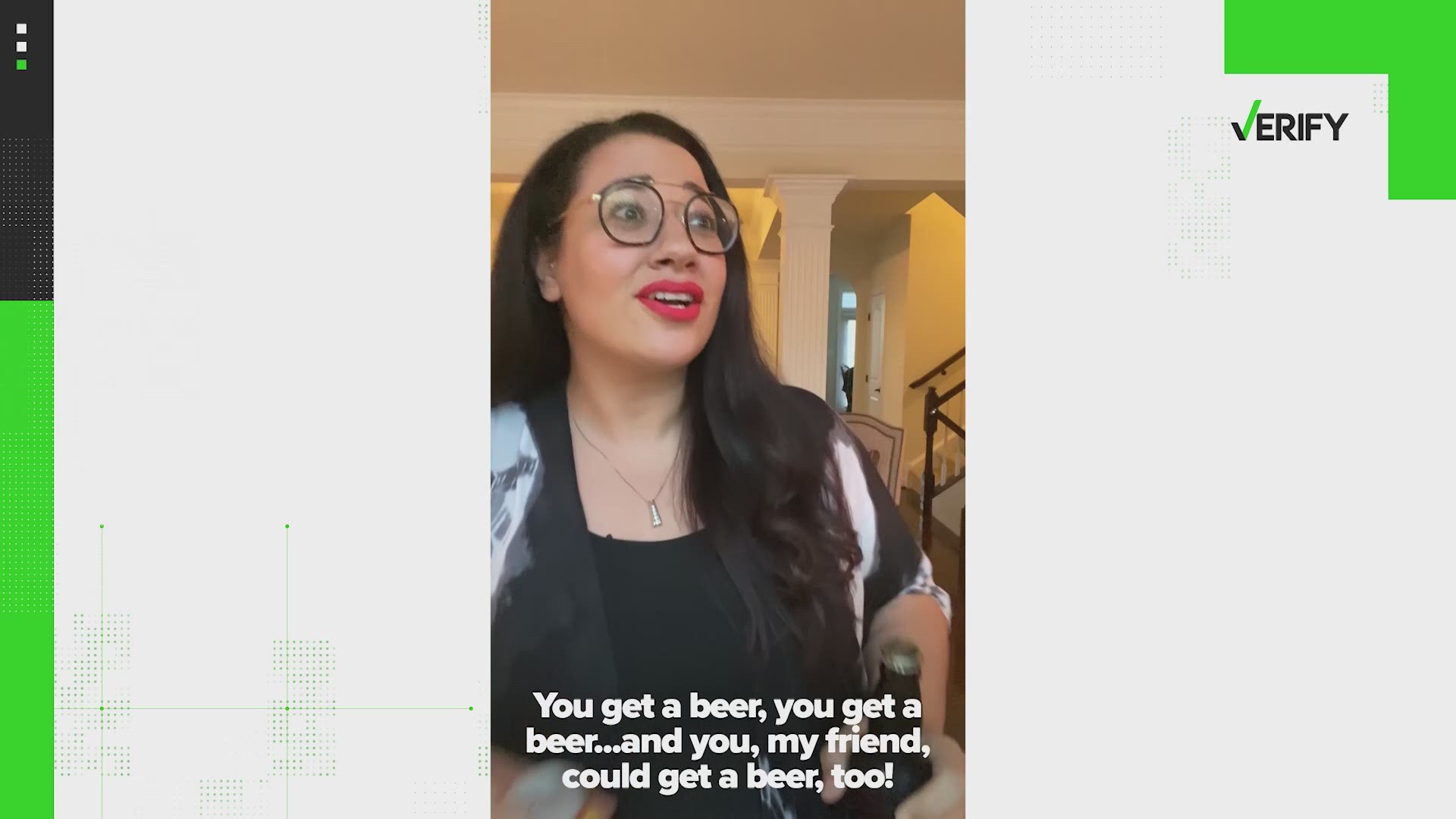With over half of the U.S. adult population fully vaccinated as of June 3, travel is ramping back up across the country to pre-pandemic levels. In fact, a Transportation Security Administration (TSA) spokesperson says during Memorial Day weekend, the agency screened nearly 1,960,000 individuals at airport checkpoints nationwide that Friday, marking the highest checkpoint volume since the start of the pandemic.
Now, airlines are trying to attract returning travelers through online sweepstakes by asking people to upload a photo of their vaccination cards to mobile apps and websites in order to enter the contests. VERIFY viewer Patti asked if doing so is safe after several government agencies, including the Federal Trade Commission (FTC) and Federal Bureau of Investigation (FBI), advised in February against sharing vaccination cards on social media.
THE QUESTION
Is there a risk in uploading a photo of your vaccine card to enter an online contest?
THE SOURCES
THE ANSWER
Yes, there is a risk in uploading a photo of your vaccine card to enter an online contest.
WHAT WE FOUND
COVID-19 vaccination record cards, which are given to people who receive a vaccine at sites nationwide, include the recipient's first name, last name, middle initial, date of birth, as well as the location, date and type of vaccine administered.
When asked about the safety of uploading vaccination cards to enter online sweepstakes, Tesia D. Williams, the director of communications at the Office of Inspector General for the U.S. Department of Health and Human Services (HHS-OIG), told VERIFY by email that the agency “discourages people from uploading content to third parties that includes their date of birth, health care details, and other personally identifiable information that can be used to steal their identity.”
Linn Freedman, a partner at Robinson+Cole and chair of the law group’s Data Privacy + Cybersecurity Team, told VERIFY on June 3 that there is no guarantee that personal information uploaded to a website, or any online platform, is going to be safe and secure.
“What many people don't understand is that there are individuals, bad guys, out in the world, out in cyberspace, that find these things and they are spending eight hours a day assembling and getting information on people so that they can target them for scams — and they can use this information in other ways,” said Freedman. “Everything is vulnerable and the intrusions are getting more and more sophisticated, so you can't assume that it will be secure.”
So what can people do to protect their personal information if they have to upload it online for travel or other reasons? Freedman provided a few tips on how to keep your personal information safe online:
- If you're doing online shopping, use one credit card.
- On social media, make sure you have privacy settings in place.
- Go directly to legitimate and official websites before you provide any personal information.
- Don't trust any emails with links or attachments because in many instances, those could be malicious.
“The more you put out there about yourself, these hackers can accumulate, and then they can use it for identity theft. If they get your social security number, they can open up credit card accounts, they can figure out what the security answers are to questions — so just be aware that they're using all that information and could [use it] against you,” said Freedman.
Williams, like Freedman, says “HHS-OIG recommends that individuals safeguard their personal information so that it cannot be adversely used by bad actors.” She also shared a link to a number of fraud schemes and tips on how people can protect themselves during the COVID-19 pandemic.
More from VERIFY: Yes, the airplane environment is why food isn't as good, although it's not just because of our senses
VERIFY
Our journalists work to separate fact from fiction so that you can understand what is true and false online. Please consider subscribing to our daily newsletter, text alerts and our YouTube channel. You can also follow us on Snapchat, Twitter, Instagram or Facebook.

